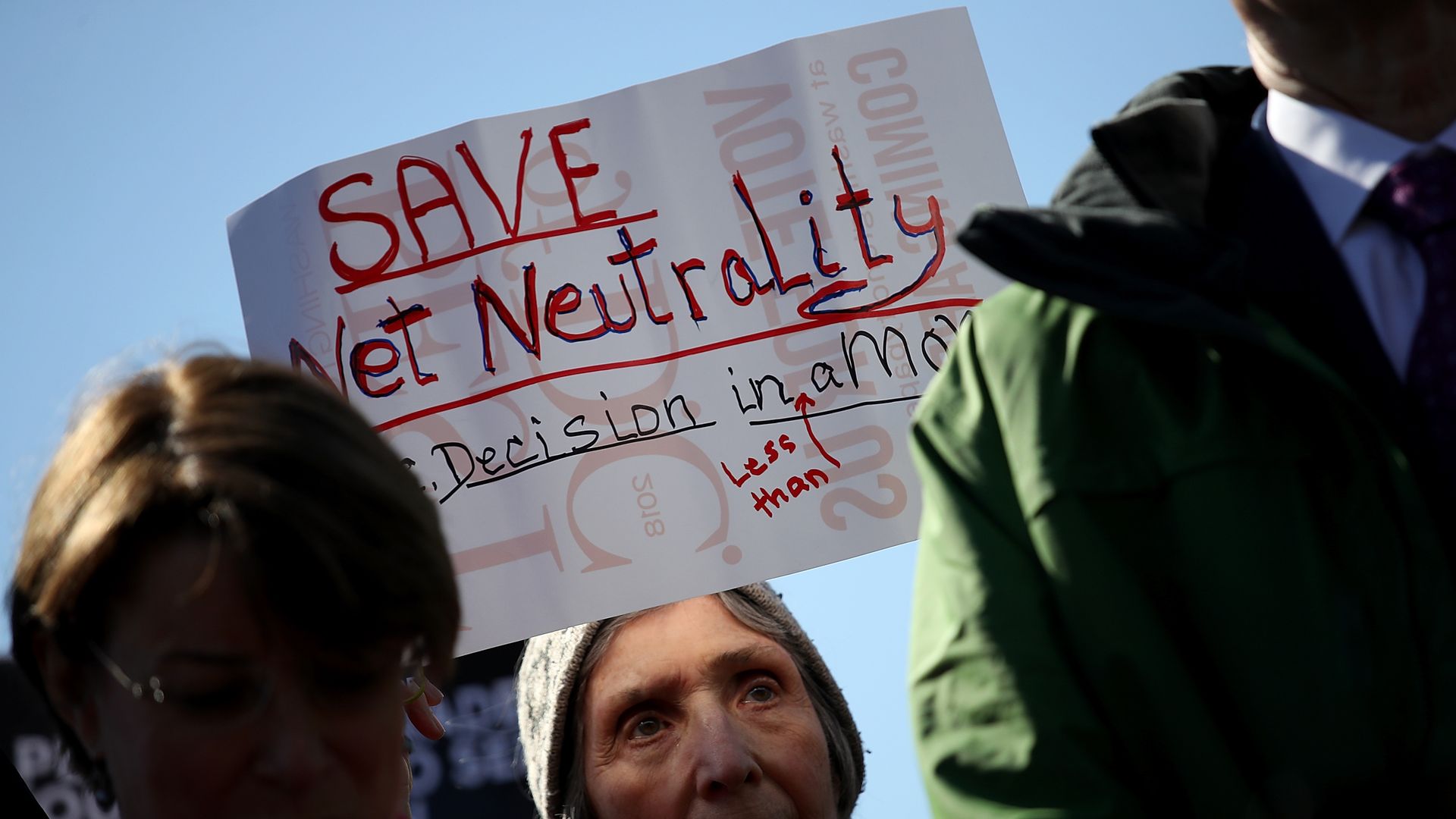Updated May 9, 2018 - Politics & Policy
The next round of the net neutrality fight kicked off today
Add Axios as your preferred source to
see more of our stories on Google.

Net neutrality supporters have publicly protested the FCC's repeal and cheered efforts to role it back. Photo: Win McNamee/Getty Images
